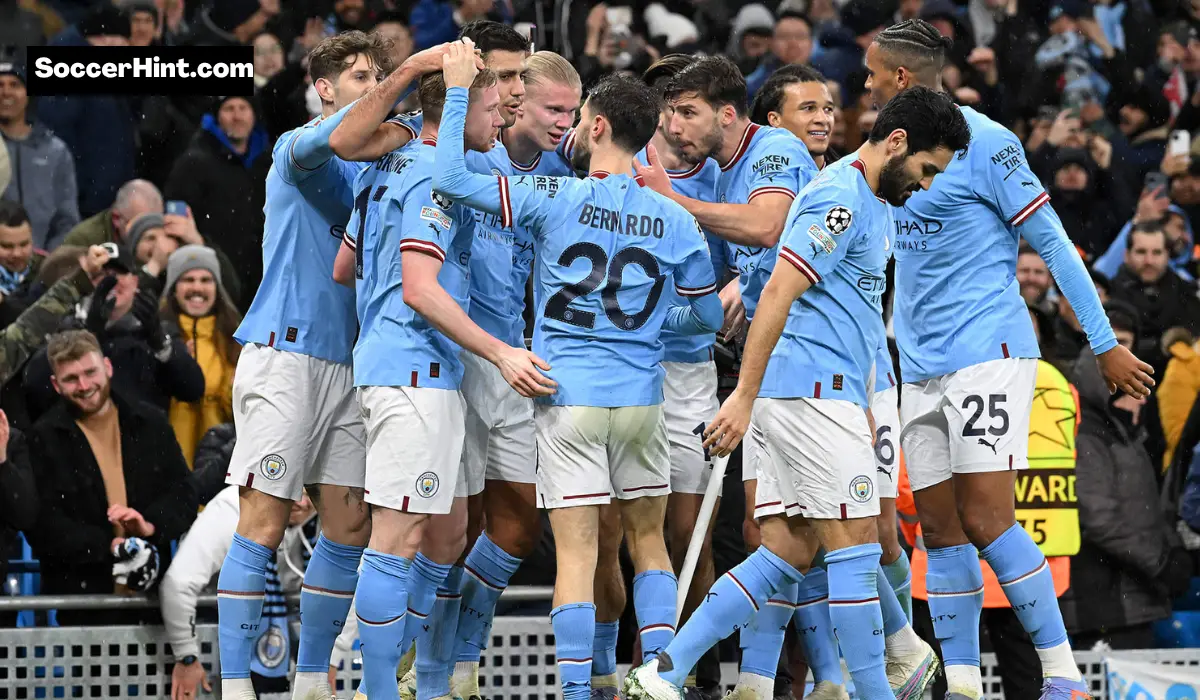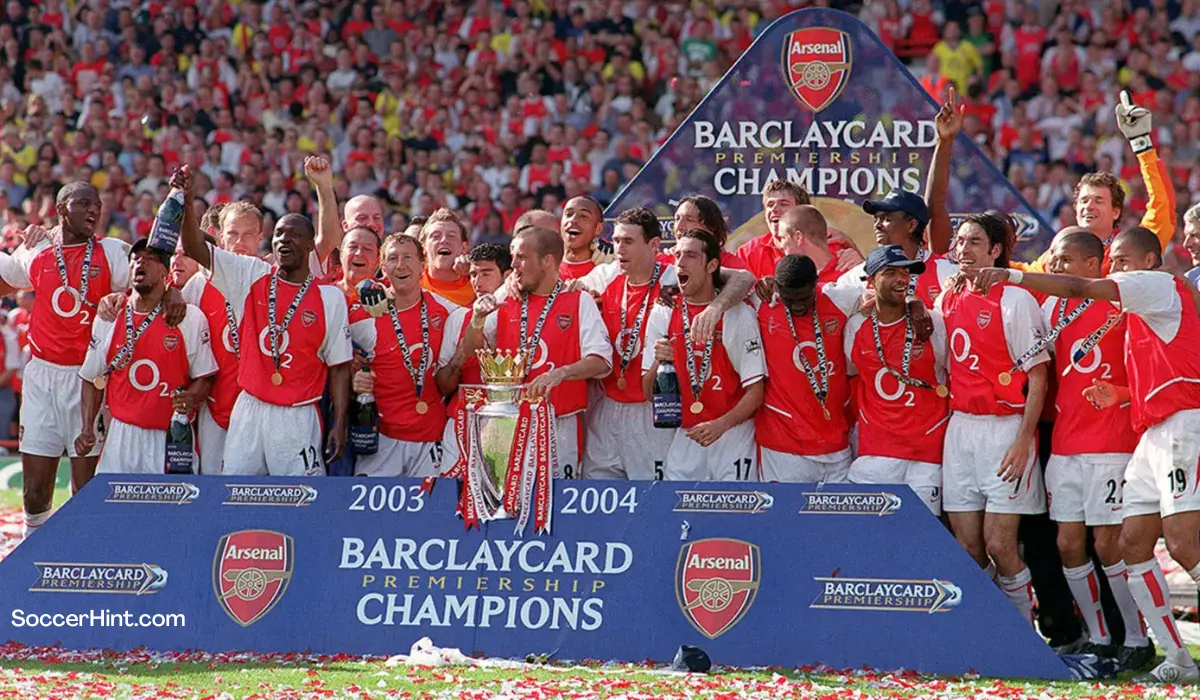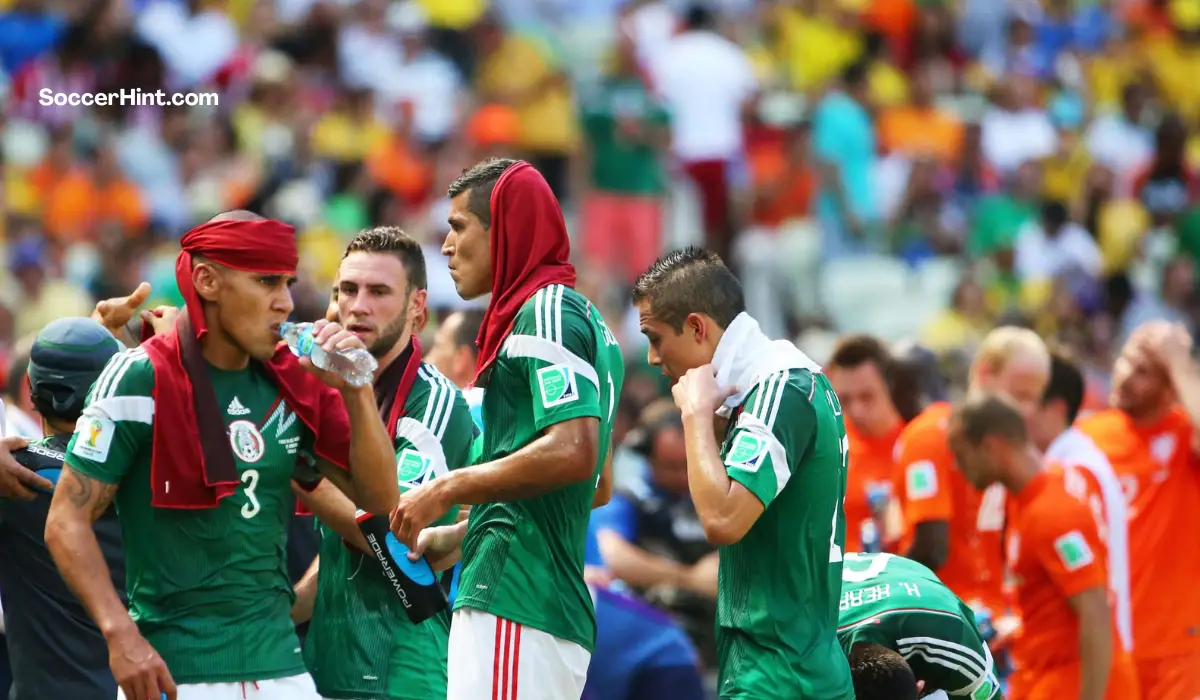Man City, one of the most successful football clubs in recent years, has garnered a significant amount of hate from various corners of the footballing world. The reasons why Man City is hated are numerous, but at the heart of it all lies their immense financial power. This power has enabled them to disrupt the traditional order, dominate domestic competitions, and challenge established rivalries. In this article, we will explore the key factors contributing to the hate surrounding Man City and delve into the intricate dynamics that have fueled this animosity.
Whether you’re a fan of Man City or just curious about the phenomenon, read on to discover the factors that have contributed to the club’s polarizing image and why it is so widely hated.
1. Financial Power
The primary reason why Man City is hated is their significant financial power. Under the ownership of Sheikh Mansour, the club has been able to invest vast sums of money in player transfers, giving rise to a perception that success can be bought. This substantial financial backing has allowed Man City to secure some of the world’s top talents, giving them a competitive advantage over many other clubs.
The substantial spending by Man City has led to concerns about the distortion of the competitive balance within football. Critics argue that the ability to splash out exorbitant amounts on transfers creates an uneven playing field, as other clubs with more limited resources struggle to keep up. This has fostered a sense of unfairness and frustration among rival supporters who feel that the club’s achievements are not earned solely on the merits of their footballing abilities.
Additionally, the perception of financial dominance can undermine the notion of football as a sport driven by skill, strategy, and fair competition. The focus on big-money signings and record-breaking transfer fees can overshadow the essence of the game and lead to accusations that Man City’s success is solely a result of financial backing rather than their own footballing prowess.
2. “Plastic” Fanbase
The recent success and rise of Man City have undeniably brought a surge in their fan base. However, this growth in popularity has also given rise to common criticism directed towards the club and its new fans. Many existing supporters of Man City, as well as fans of other clubs, accuse these newfound enthusiasts of lacking genuine loyalty or a deep connection to the club’s history and traditions.
The influx of new fans can be attributed to the club’s achievements, such as winning the Treble and the Champions League, under the management of Pep Guardiola. This success has undoubtedly attracted attention and garnered interest from football enthusiasts around the world. However, some long-standing supporters argue that these new fans have jumped on the bandwagon, drawn to Man City solely because of their recent triumphs rather than a genuine emotional investment in the club.
Critics claim that these “plastic” fans, as they are often labelled, may lack an understanding of the club’s past struggles and heritage. They argue that true loyalty is built through years of supporting the club, even during challenging times, and a deep understanding of the club’s values, traditions, and historical significance.
This criticism is not unique to Man City, as many successful clubs face similar accusations when experiencing a surge in popularity. However, it is particularly pronounced in the case of Man City due to their rapid ascent and the contrast between their recent successes and their previous years of relative obscurity.
3. Rivalries
One of the key reasons why Man City is often hated by opposing fan bases is the intensification of rivalries, most notably with Manchester United. The success enjoyed by Man City in recent years has heightened the animosity between these two clubs, fueling a strong dislike among their respective supporters.
The Manchester Derby, the clash between Man City and Manchester United, has long been a fierce and passionate rivalry. However, Man City’s rise to prominence, including their success in winning titles and competing at the highest levels of football, has added a new dimension to this rivalry. The intensified competition for dominance in Manchester has fueled a deep-seated animosity between the two clubs’ fan bases.
For fans of Manchester United, witnessing Man City’s ascent to success can be particularly difficult to accept.
4. Breaking Transfer Records
The recent signing of Jack Grealish for a British record fee of 100 million pounds is a prime example of their financial prowess and has further exacerbated feelings of envy and resentment among rival supporters.
The ability to spend such exorbitant amounts of money on transfers showcases Man City’s financial dominance in the world of football. The club’s ownership and resources allow them to outbid competitors and acquire highly sought-after players. This financial advantage can create a perception that Man City is simply buying success and distorting the level playing field that is fundamental to the sport.
When Man City breaks transfer records, it not only demonstrates their financial clout but also raises the bar for other clubs in terms of player valuation and market dynamics. This can lead to a sense of frustration and envy among rival supporters whose clubs may not have the same financial backing.
The perception that Man City can effortlessly outspend and outmuscle their rivals in the transfer market fuels animosity and adds to the reasons why they are often hated by fans of other clubs.
5. Disrupting the Status Quo
Man City’s ascent to the top of English football, particularly since their transformation under the ownership of Sheikh Mansour in 2008, has significantly disrupted the established order in the Premier League. Prior to their rise, the so-called “Big Four” clubs, consisting of Manchester United, Arsenal, Chelsea, and Liverpool, were widely regarded as the dominant forces in English football.
For years, these four clubs had enjoyed a stranglehold on the top positions in the Premier League and consistently represented English football in European competitions. Their financial resources, historical success, and global fan bases gave them an aura of invincibility and a perceived entitlement to top honours.
However, Man City’s substantial investment in the club, coupled with their ambitious recruitment of top talent, quickly propelled them into the realm of the traditional big clubs. This transformation was particularly evident in the 2011-2012 season when Man City famously clinched their first Premier League title in 44 years, pipping Manchester United to the crown in a dramatic fashion on the final day of the season.
6. Lack of Tradition
Despite their recent success, Man City has faced criticism for what some perceive as a lack of tradition and a less rich historical legacy compared to other top clubs in football. This criticism stems from the fact that Man City’s rise to prominence has occurred relatively recently, with their transformation under Sheikh Mansour’s ownership in 2008 marking a turning point for the club.
Many football clubs have a long and storied history, filled with iconic moments, legendary players, and deep-rooted traditions that have been passed down through generations of supporters. These historical legacies contribute to the sense of identity and authenticity that fans associate with their clubs. In comparison, Man City’s history, especially prior to their recent success, is seen by some as less illustrious or significant.
This perception of a lack of tradition is often fueled by comparisons to other top clubs in English football, such as Manchester United, Liverpool, Arsenal, and Chelsea, who have enjoyed prolonged success and have established themselves as pillars of the game. These clubs have celebrated numerous domestic and international titles over the years, forming a rich tapestry of achievements that have become integral to their identities.
In contrast, Man City’s recent accomplishments, while impressive, are sometimes viewed as a sudden surge of success without the same historical depth.
8. FFP Controversies
Man City’s involvement in breaches of UEFA’s Financial Fair Play (FFP) regulations has been a major point of controversy surrounding the club. These violations, resulting in fines and a temporary ban from the UEFA Champions League, have fueled accusations of cheating and unfair advantages.
One notable instance occurred in 2014 when UEFA found Man City guilty of overstating their sponsorship revenue, which allowed them to meet FFP requirements. It was revealed that the club had allegedly received significant sponsorship funds from companies closely linked to their ownership, which raised concerns about the legitimacy and independence of these financial transactions. UEFA imposed a fine of €60 million on the club and limited their Champions League squad size for the subsequent seasons.
Another case involved leaked documents known as the “Football Leaks,” which exposed further evidence of financial irregularities. The leaks suggested that Man City had engaged in the practice of “third-party ownership,” where external entities held stakes in player transfer rights. This practice was deemed a violation of FFP regulations, and in 2020, Man City was handed a two-year ban from the Champions League by UEFA. The ban was later overturned on appeal by the Court of Arbitration for Sport (CAS), but the controversy surrounding the club’s adherence to FFP guidelines persisted.
These instances of breaching FFP regulations have led to accusations that Man City gained unfair advantages by circumventing financial restrictions. Critics argue that such actions allowed the club to overspend and assemble a highly talented squad, creating an imbalance in competition and distorting the level playing field.
9. Pep Guardiola’s Success; City’s Recent Dominance
Man City’s dominance in domestic competitions, coupled with the success of manager Pep Guardiola, has been a major factor contributing to the negative image and eliciting feelings of jealousy and frustration among rival supporters.
Furthermore, under Guardiola’s stewardship, Man City has consistently secured domestic trophies every season, except for his first. This level of sustained success further amplifies the frustration among rival supporters who see their own clubs struggling to keep up with Man City’s dominance.
Accusations of Pep Guardiola “buying” success through high-profile signings and relying heavily on the club’s financial resources have added to the criticism directed towards both the manager and the club. Guardiola’s track record of achieving success at previous clubs, combined with Man City’s substantial financial backing, has led to perceptions that the club’s triumphs are a result of simply outspending their rivals rather than building a team through organic means.
The combination of Man City’s consistent domestic success and the perception that Pep Guardiola has achieved it through financial means has fueled animosity and created a strong basis for fans of other clubs to harbour resentment and, in turn, hate Man City.
10. Lack of Underdog Status
One of the key reasons why Man City is often hated is the erosion of their underdog status, primarily due to their financial muscle and on-field success. This shift in perception has made it challenging for neutral fans to root for them and has created a sense of resentment towards their seemingly unstoppable dominance.
Historically, underdog stories in football have captivated the hearts of fans worldwide. The tale of a smaller club overcoming the odds, battling against financial disparities, and achieving remarkable success has always held a certain charm. These underdog stories inspire admiration and generate a sense of emotional connection among fans.
However, Man City’s financial resources, particularly through the ownership of Sheikh Mansour, have allowed them to operate at a level where they can outspend many other clubs in the pursuit of top players and build a formidable squad. This financial dominance has propelled them from being a club in the shadows of their more successful Manchester rivals to one that consistently competes at the pinnacle of the sport.
The financial backing, coupled with on-field success, has shifted the perception of Man City from underdogs to frontrunners. Their multiple Premier League titles, domestic cup triumphs, and even their historic Champions League win have cemented their status as a powerhouse in European football.
11. Bitterness From Lower League Fans
Man City’s rapid rise to prominence, fueled by significant investment, has sparked bitterness among fans of lower-league clubs who feel overshadowed and marginalized by the club’s success. This resentment stems from the perception that their own clubs, with limited resources and lower-profile status, are unable to compete on an equal footing.
One notable example of this bitterness can be seen in the case of Bury Football Club. Bury, a historic club founded in 1885, experienced financial troubles and was expelled from the English Football League (EFL) in 2019 due to financial mismanagement. This expulsion left a void in the footballing landscape for the loyal fans of Bury FC.
During the same period, Man City, just a few miles away, was basking in the glory of their success, winning domestic titles and competing at the highest level of European football. The stark contrast between Man City’s meteoric rise and Bury’s demise intensified the bitterness among Bury fans and supporters of other lower-league clubs.
For these lower-league fans, Man City’s financial prowess and ability to attract top players, coupled with their on-field achievements, serve as a constant reminder of the disparity in resources and opportunities between clubs. They perceive Man City’s success as further widening the gap between the elite clubs and those operating in lower tiers of the football pyramid.
12. Possession-based Style of Play
Man City’s style of play under the guidance of Pep Guardiola has been characterized by a possession-based, intricate approach that focuses on tactical precision. While this style has garnered success in terms of results and trophies, it has also attracted criticism and disdain from some fans who prefer a more direct and entertaining approach to football.
Statistically, Man City’s possession dominance is evident. In the Premier League, they have consistently ranked among the highest in terms of average possession per game. For example, in the 2022-2023 season, Man City recorded an average possession of 61.6%, the highest in the league. This reflects their commitment to controlling the game by maintaining possession and dictating the tempo.
Critics of this style point to the relatively low number of shots per game as evidence of its lack of excitement. In the 2022-2023 Premier League season, Man City averaged 15.7 shots per game, ranking seventh in the league. While their precision and efficiency in converting these shots into goals were notable, with a high shot accuracy and conversion rate, some fans yearn for a more fast-paced and high-scoring style of play.
Moreover, the intricate passing patterns and emphasis on positional play can be seen as overly tactical, leading to accusations of a lack of spontaneity and creativity. While the approach has yielded success, with Man City breaking records for the number of points and goals scored in a Premier League season, there are those who argue that it lacks the raw excitement and unpredictability that fans associate with a more freewheeling, attacking style.
No wonder Man City is being hated today.
Conclusion
The reasons why Man City is often hated are multifaceted, but at the core of it all is their immense financial strength.
Their ability to spend exorbitant amounts on transfers, coupled with their on-field success, has created a sense of resentment and jealousy among rival fans. The perception of buying success, disrupting the status quo, and lacking tradition all stems from the central role of their financial dominance.
While other factors such as style of play and rivalries contribute to the dislike, it is the financial power of Man City that intertwines and connects them all.





